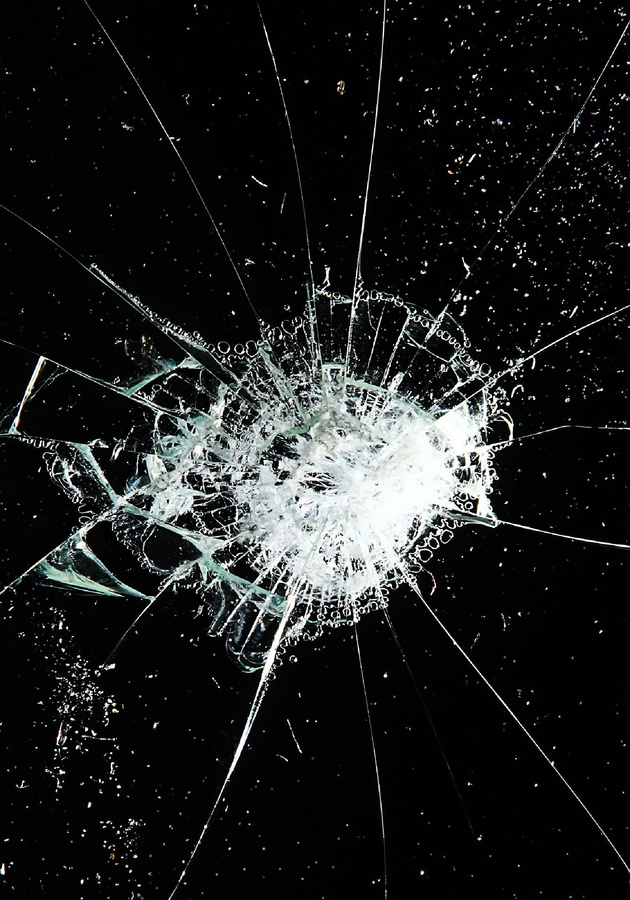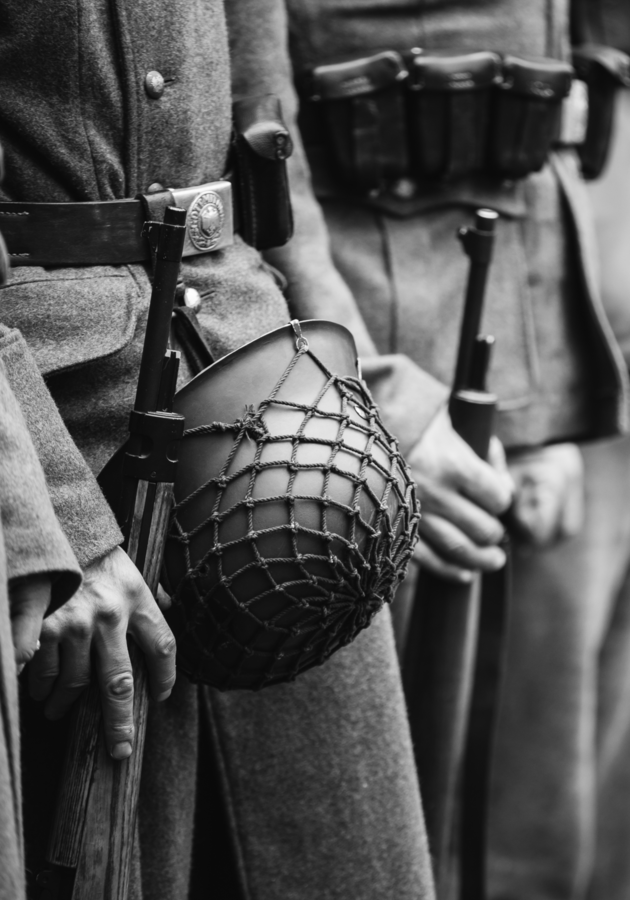The son of a preacher man from North Dakota, Phil Jackson grew up to become not only the most successful NBA coach in history, but also one of the most innovative and respected leaders of our time.
To achieve this, Jackson dedicated most of his career to exploring everything from humanistic psychology and Native American rituals to Christian mysticism and Zen meditation. Eleven Rings, his seventh book (and the second, after Sacred Hoops, co-authored with Hugh Delehanty, a former editor for Sports Illustrated and People), documents this journey. Eleven Rings uncovers how, through the years, Jackson developed “a new approach to leadership based on freedom, authenticity, and selfless teamwork that turned the hypercompetitive world of professional sports on its head.”
So, get ready to learn all about the unconventional leadership philosophy of Phil Jackson, the justly-nicknamed “Zen Master of professional sports.”
The ring, a circle of love
Soon after winning the 2009 NBA championship with the now Shaq-less LA Lakers – seven years after completing a three-peat with the team in 2002 – Phil Jackson, now the most successful coach in NBA history, stood in front of a jubilant crowd gathered at the Staples Center to celebrate the team’s return to winning ways. He addressed it with the following words: “What was our motto on this team? The ring. That was the motto. It’s not just the band of gold. It’s the circle that’s made a bond between all these players. A great love for one another.”
And, indeed, as Jackson informs us, as much as the ring might symbolize status and power in the NBA, on a psychological level, it symbolizes something much more profound: “the quest of the self to find harmony, connection, and wholeness.” Case in point: in Native American culture, whole nations were conceived as a series of interconnected rings. The unifying power of the circle was so meaningful to the Native Americans that they built everything in circles. Not only were the tepee and campfire rings, but so were the villages or even the layouts of the entire tribe. Circles within circles, having no beginning or end. Circles of love.
As clichéd as it might sound, that is the secret ingredient of success in team sports. Obviously, we’re not talking about brotherly or romantic love here, but about a strong emotional connection, one that Jackson is wont to compare to the bond great warriors experience in the heat of battle. As he learned from a book by journalist Sebastian Junger, most of them are quite ready to literally die for their brothers in arms; just as well, athletes should be at least metaphorically prepared to do the same for their teammates. “It takes a number of critical factors to win an NBA championship,” writes Jackson, “including the right mix of talent, creativity, intelligence, toughness, and, of course, luck. But if a team doesn’t have the most essential ingredient – love – none of those other factors matter.”
Jackson’s tribal leadership
Now, you’ve got to admit that the NBA isn’t exactly the friendliest environment for teaching love and selflessness. On the contrary, in fact: most basketball players are ego-driven and prefer to make it for themselves rather than for their teams. The game itself might be, by definition, a five-person sport, but the culture surrounding it “celebrates egoistic behavior and stresses individual achievement over team bonding.”
So, essentially, Jackson’s job as a coach was not only to offer an alternative love-based model of behavior for his players, but also to prove to them that this was the only way. Believing that basketball teams share many of the same characteristics with small organizations, Jackson makes his point clearer by bringing up – and constantly coming back to – the groundbreaking book Tribal Leadership by management consultants Dave Logan, John King, and Halee Fischer-Wright, which suggests that teams develop along these lines:
- Stage 1. Stage 1 organizations are characterized by despair, hostility, and the collective belief that “life sucks.” Most street gangs belong here.
- Stage 2. The generalized “life sucks” evolves into the more specific “my life sucks,” giving birth to an apathetic environment filled with people who are passively antagonistic and primarily perceive themselves as victims. Most office-based environments are such: think Dilbert or The Office.
- Stage 3. People in organizations at this stage are not lethargic, but they still make everything about themselves. They feel they have to win, but instead of working as a team, they do this “by outworking and outthinking their competitors on an individual basis.” Their motto is “I’m great (and you’re not).” The resulting mood is “a collection of lone warriors.”
- Stage 4. The “I” of Stages 2 and 3 evolves into a “we” at Stage 4: people in organizations at this stage are driven by the motto “we’re great (and they’re not)” and put their tribal pride at the forefront. Since they excel in the presence of a strong external adversary, the bigger the foe, the more powerful their tribe.
- Stage 5. Stage 5 is almost unattainable and is characterized by “a sense of innocent wonder and the strong belief that ‘life is great.’”
Now, depending on the team he managed and the season, Jackson’s job was either to inspire his teams to make the leap from Stage 3 to Stage 4 (say, the 2009 Lakers), or from Stage 4 to Stage 5 (the 1995 Chicago Bulls). The rules naturally changed from year to year and from collective to collective. There is no such thing as universal principles leadership, Jackson points out. “In order to shift a culture from one stage to the next, you need to find the levers that are appropriate for that particular stage in the group’s development.”
The Jackson eleven
Even so, Jackson does give an overview of “the basic principles of mindful leadership” that he managed to evolve over the years to help transform disorganized teams into champions. Here they are:
- Lead from the inside out. It’s not that running with the lemmings and studying other coaches doesn’t work – it’s that it works only for a brief period and only if you have a forceful, charismatic personality. If you are not such a person, the more you speak from the heart, the more your followers will hear you and benefit from your advice.
- Bench the ego. “After years of experimenting,” writes Jackson, “I discovered that the more I tried to exert power directly, the less powerful I became.” The trick is to distribute your power as widely as possible, while not surrendering final authority. It’s not “my way or the highway” – it’s “our way or no way.”
- Let each player discover their own destiny. Forcing your will on people has a damaging counter-effect. If you want them to act differently, you need to inspire them to change themselves. That’s why Jackson didn’t call timeouts after every 6-0 run: he preferred letting his players think for themselves and find a solution between them.
- The road to freedom is a beautiful system. “True ease in writing comes from art, not chance – as those move easiest who have learned to dance,” wrote Alexander Pope in An Essay on Criticism in 1977. Well, Jackson believes that the same holds true for team sports as well: freedom (as Kobe seems to have learned late, late in his career) is the result of a well-executed system, not of its absence. For Jackson, that system was the triangle offense taught to him by his lifelong colleague, Tex Winter, in their early Chicago days when Jackson was his assistant. This system aligned perfectly with the values of selflessness and mindful awareness Jackson had been studying in Zen Buddhism, so he never stopped practicing it. It brought him and his teams more rings that his hands have fingers.
- Turn the mundane into the sacred. The best way to bring individuals together is to make their shared experience a meaningful affair. Basketball is, in essence, quite a mundane endeavor; however, when it becomes a shared mission, it turns into something sacred. “The essence of coaching,” writes Jackson, “is to get the players to wholeheartedly agree to being coached, then offer them a sense of their destiny as a team.”
- One breath = one mind. The 1999 Lakers were a very talented, but a highly unfocused team – unlike, say, Pop’s Spurs. Why? Simply put, they were incapable of eliminating distractions. So, Jackson introduced them to one of the tools he had used successfully with the Bulls: mindfulness meditation. True, he was ridiculed by other coaches as someone who sits in a dark room and holds hands with his players, but Jackson got the last laugh, didn’t he?
- The key to success is compassion. Lao-Tzu believed that the three greatest treasures of life are simplicity, patience, and compassion. Of these three, Jackson deems the last one the most important: compassion breaks down barriers among people and turns disjointed units into teams. Michael Jordan learned this the hard way after returning from his hiatus in 1995 to a Chicago Bulls team that had changed in the meantime. The new guys didn’t listen to him. Only after coming to blows with one of the team’s newcomers, Steve Kerr, he realized that he lacked compassion to lead the team to the title once again. He was a different guy the very next day.
- Keep your eye on the spirit, not on the scoreboard. A team works best when each of its members surrenders their self-interest for the greater good. It is the job of a coach to discover the best role of a player and convince them to take that role. By playing within their natural abilities, Jackson writes, “a player activates a higher potential for the team that transcends his own limitations and helps his teammates transcend theirs.”
- Sometimes you have to pull out the big stick. Everyone knows that Phil Jackson is a Zen master, but very few people know that he is a Zen master all the way. And it is a well-known Zen practice to use “a compassionate stick” called keisaku to reinvigorate listless meditators and get them to pay attention. Jackson wielded his metaphorical stick often in practice, and in numerous ways, his favorite being scrimmage games rigged in favor of the weaker side. In his later years, a preferred target of his for these keisaku mind games was Luke Walton, because he knew that Luke wanted to become a coach, and he wanted to teach him that “coaching isn’t all fun and games” and that one can’t be a coach if they need to be liked.
- When in doubt, do nothing. “No one does nothing better than Phil,” wrote once the Los Angeles Times’ T.J. Simers. And Jackson is mighty proud of this. Sometimes you’ve got to let your unconscious solve the problem that your reason can’t, and it can only be activated when you’re not concentrating on work at all. In short, inspiration flows when your mind is at rest.
- Forget the ring. Obsessing about winning is a loser’s game because it damages the team bond in the long run by causing one to lose control of their emotions. According to Jackson, “the most we can hope for is to create the best possible conditions for success, then let go of the outcome. The ride is a lot more fun that way.” So, forget about winning and concentrate on playing – the win will come itself.
Final Notes
Described by Sam Anderson for The New York Times magazine as "part sports memoir, part New Age spirit quest, part pseudo-management tract,” Phil Jackson’s Eleven Rings is perhaps the only book ever written that dedicates as much attention to the Chicago Bulls and the LA Lakers as it does to Native American customs, psychotherapy and Buddhism.
But, come to think of it, it would have been nothing short of strange if it had been otherwise. That is, if a person as unique as Phil Jackson hadn’t treated us with such an idiosyncratic book. The fact that it reflects both his life and work is not only a testament to his polymathy, but also evidence of the integrity and consistency of his character – rare traits in the dishonest world of Facebook posts and instalives.
Conceivably pitched to Penguin as a book for leaders by a made leader, Eleven Rings may be a bit unnecessarily lengthy at times, and even tediously all-over-the-place at others, but somehow it ends up being both a must-read for NBA fans and a should-read for wannabe trailblazers.
12min Tip
Being too competitive and focused on winning might throw you out of whack spiritually. That leads to a certain loss. So, it is much better to focus on your journey rather than the goal. “What matters most is playing the game the right way and having the courage to grow,” writes Jackson. “When you do that, the ring takes care of itself.”





























